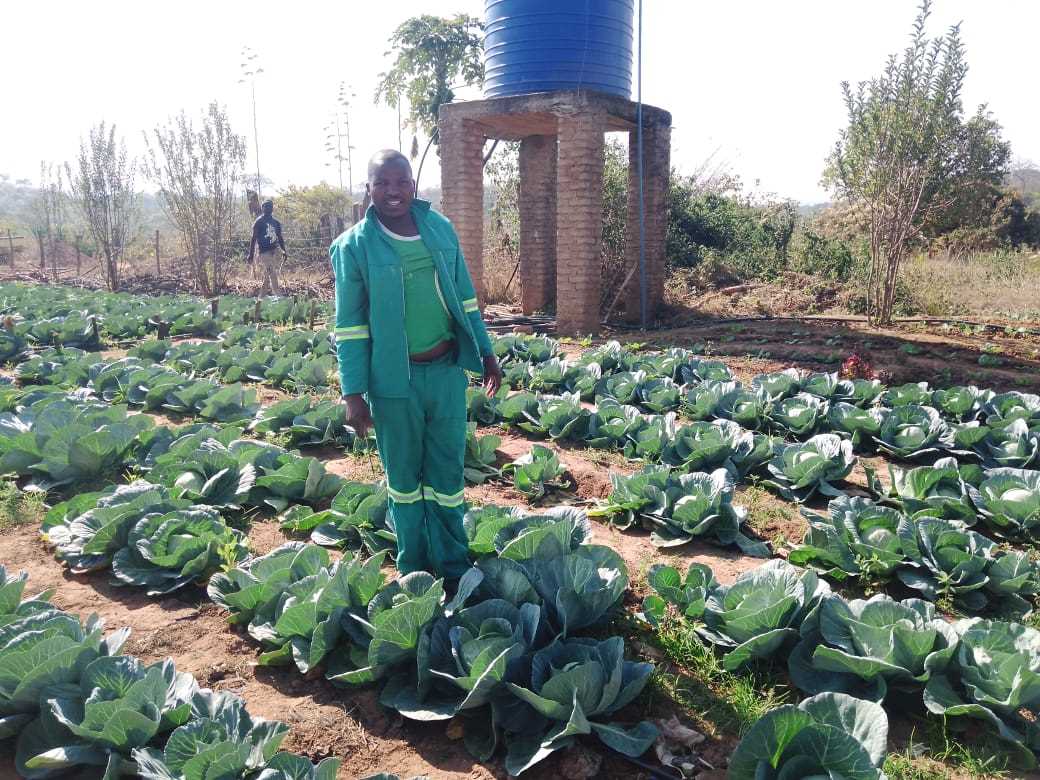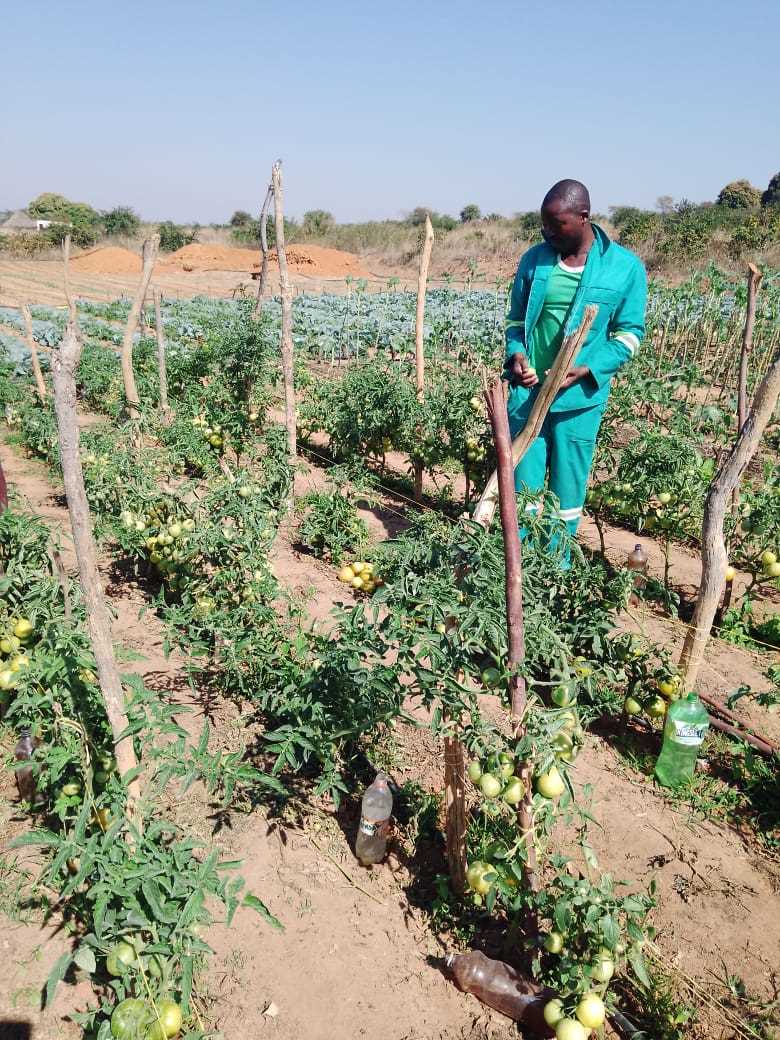
Edmore Zvinonzwa
The floodgates that opened in Zimbabwe’s fast-track land reform programme following the Chief Svosve invasion of farms in Mashonaland East Province at the turn of the millennium benefitted many land-hungry citizens.
Widely criticised at home and abroad for its often chaotic modus operandi, zimbabwe’s agrarian reform marked the beginning of the change in the ownership of the means of production – the land – that oiled the country’s pre-dominantly agro-based economy.
However, Philemon Sagope of Chikondori Village that falls under ward 23 under Chief Ndanga in Zaka Central constituency – Masvingo Province – was still in school, rendering him ineligible for land allocation at that time.
Now 40, Sagope has not let this blind his vision despite missing out around 2000. He has grown into one of the major producers in ward 23, working on a part of his father’s land, turning it into a bastion of green that promises bountiful returns in the future.
The businessman-cum-farmer has not looked back after seeing what the soil could offer, driven by his passion for farming as well as sheer determination to succeed beyond all odds.
On top of his general dealership and two bar outlets, all based at Gumbo Business Centre, Sagope has metamorphosed into a farmer of note, producing a variety of vegetables while also starting work on a fishery project right in the middle of the village.

This has underlined his quest for success, which is buoyed buttressed by his ever-supportive spouse.
Born on June 22, 1984, Sagope recalls seeing people bringing in cabbages from Harare, tomatoes from Chipinge, bananas from Nyanga and other crops from elsewhere across the country.
“I used to see people bringing in produce such as cabbages and potatoes from as far afield as Harare, tomatoes from Chipinge but overlooked our own capability here,” remembers Sagope, who is married to Fortunate Musvavi.
The couple now has four sons.
In an interview with Zim Now, Sagope said he later thought of trying it out in his own locality, a part of the parched Agro-ecological Region 4 of the country.
“I felt we could also grow these crops ourselves and transform ourselves from buyers into suppliers. I decided to use a one-hectare part of this communal piece of land for my projects.
“My position is that if authorities see my potential, they may consider me for a larger farm where I will, without doubt, be even more productive,” Sagope told Zim Now.
“I have always had confidence in my potential on the land since leaving school in 2005. I opened a gum tree plantation on leaving school and this has been a source of timber for the family ever since.
“On this particular piece of land, I grow cabbages, king onions, okra, tomatoes, rape and there is also an okra section on the point of germination,” he said.
Sagope’s king onion section has 6 000 plants although initially aiming for 10 000 but the nursery could not produce enough seedlings.
The 40-year-old envisages that the cabbages that he is already harvesting could give him a minimum of US$800 since most people have vegetables in the area, a development that could reduce demand while forcing prices down.
Related Stories
“With the tomato plant population at 2 000 at the point of ripening, we expect around US$4 000, especially if we manage to get adequate pesticides and the crop continues to evade the frost bite affecting most crops in the area,” Sagope added.
Sagope uses drip irrigation, which cost him approximately US$8 000, from a solar-powered borehole at 45 metres deep and a 5 000-litre tank.
“Plans are underway to deepen the borehole later this year to ensure water is available all-year-round. Once that happens, I am planning to put the whole area with maturing cabbages under maize.
“I am also in the process of constructing a fish pond and this will function as a reserve water tank,” he said.
A planned piggery project is expected to utilise all the waste from the field while the fish pond will get some of its feed from the piggery.
There are a number of challenges, however, that Sagope has encountered in trying to turn this farming section into a strategic unit of his fledgling business.
“One of the major challenges was that of drip valves that were out of stock in Masvingo and had to be sourced from Harare.
“The other is that we started late on the labour-intensive field where there are only two of us working on it. We use mostly compost manure, which I carry down here using my pick-up truck. We do not use fertilisers as the project is still small,” he said.
The market side of things is one of the least of his worries for now.
“I am not rushing at this point but will sell around the community while planning to reach the wider market later. The experience I will garner this year will be key as we move forward,” he said, adding that success in farming can only come when one begins to look at the exercise as a business.
“Farming should be taken as a business. Gone are the days when people used to toil on the land, filling up grain stores for years in succession without selling anything.
“With vegetable farming, most crops are short-term ones with the potential to bring returns faster than maize, for instance,” Sagope told Zim Now.
He added that he changes the type of vegetables he grows on each section, in line with the demands of crop rotation.
Sagope feels anyone can draw benefit from the land through farming as long as they are prepared to work hard.
“My word of advice, especially for the young and energetic, is that hard work rewards abundantly. Unfortunately, most of them want to live cheap, abusing drugs and intoxicating themselves with dangerous substances – things that have no positive contribution to their lives and those of their families.
“I did no start with a borehole. Rather, it came out of focused hard work.
“I foresee growth in the future and actually think government should look at people who realise optimum productivity when allocating land. Productivity is something that should be proven and should qualify one for bigger farmland,” Sagope said.
He added that he sees a future where he will be the biggest supplier of fish and vegetables in the district.




















Leave Comments